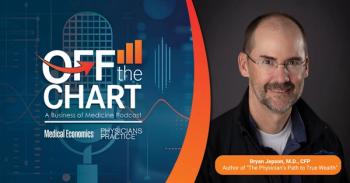
Four Ways Physicians Start Their Day on a High Note
Advanced preparation and planning can dramatically change physicians' outlook and productivity levels at their medical practices.
The word "breakfast" obviously comes from the two words "break" and "fast," which means that the fast you experienced while you were sleeping now comes to an end. You've long known that eating a large breakfast - indeed making breakfast the biggest meal of the day - is beneficial on many fronts, among them mental acuity. To not eat breakfast is harmful and leads to potentially overeating during the day, as well as a variety of negative health indicators.
Suppose having a big breakfast is not an issue for you. What else can you do to have a more than decent chance of experiencing a highly productive day? Among many activities and practices, I suggest these:
1) The night before going into the office, assemble by your front door whatever you need to take into work the next morning. In other words, each morning instead of having to round up items, which could thwart your ability to arrive at the office in an enjoyable manner, have everything ready to go. Then, simply grab your bag, box, or briefcase and be on your merry way. If you live in an agreeable climate, you could even stock your car with such items the night before and hence have one less bag to carry to the car.
2) Depart 30 minutes before you normally do. Why? Every quarter hour earlier that you depart for work increases your chances of having a smoother commute, because there are fewer cars on the road. Hence, leaving earlier is a form of time-shifting. The 30 minutes you spent at home is now spent in the office. If you want to read the newspaper or handle personal business, like you might have done at home, it's your choice.
3) When you arrive at your office, it is to your great advantage to have put everything in its place the night before. Thus when you return, there is little to do administration-wise. I've spoken to multimillionaires who tell me that when they come into their offices in the morning and everything is in place, they know it's going to be great day. Conversely, when they didn't tidy up the night before, and they arrive in the morning to see the mess, they feel somewhat defeated.
4) Before the rest of your office staff begins arriving, and certainly before you see your first patient, seek to handle the most challenging tasks first. Studies reveal that we are best able to handle big challenges earlier in the morning. Completing a significant task early is a great boost to your productivity and effectiveness for the rest of the day.
In conclusion, by adjusting a few elements in your home and work environment as discussed, you can dramatically change your outlook and propensity to accomplish great things and feel good about your typical workday.
Newsletter
Optimize your practice with the Physicians Practice newsletter, offering management pearls, leadership tips, and business strategies tailored for practice administrators and physicians of any specialty.








